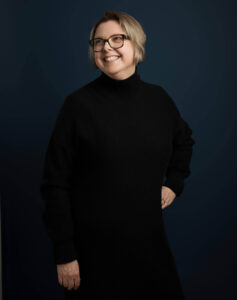When you embark upon a PhD journey, it is very easy for your mind to run before your data collection can even crawl. The moment you secure a place to research, you find yourself thinking, “I know it’ll be a long slog… I should probably wait a whole WEEK before I put in that ethics application to really get it right!” Ha, if only! But, the development of the PhD, from its needy infancy, through its troublesome teens, is a valuable process at every stage.
I am now moving towards the write-up of my first draft, and as such am reviewing my reflective diary… not the happiest of reading! The most common refrain from my first two years is incredulity that this research is just not growing up; disappointment that the Literature Review must be completed before data collection can even be contemplated, dismay that I must amend my ethics application before it can be approved, and concern that participants are not lining up outside my office, desperate to sign up. I can chuckle at my naivety now, but I can still remember the fear and worry which overtook me each time I felt my progress had stalled, the concern that my work simply hadn’t been ‘raised right’ and now, nothing could be done.
After drafting my Literature Review four times, I finally felt comfortable with submitting the (fifth draft) of my ethics application. I recall my panic after being asked to make changes when speaking to a fellow PhD student who had already begun data collection. (I neglected to note the panic in her voice as I casually mentioned the number of times I redrafted my Literature Review and that I was currently on the third version of my Methodology). I opined that I was simply cursed to not complete this until after I was thirty (well, I was right there!) and felt that I may need to find some way to switch to secondary. After all, I felt I had exhausted every possible consideration and, yet still, I had missed some! If I couldn’t even be theoretically ready to commence interviews, how could I possibly actually collect data in a timely fashion? My baby was not developing like the manuals said she should!
Soon, of course, I received the coveted ‘green light’ for primary research to commence, but my joy was short-lived…people were just not signing up. I tried to make contact, guided by my supervisors, I travelled, I emailed, I called, but seemingly to no avail. “I’m just not cut out for it” I thought despairingly. “Some people inspire confidence and prompt disclosure, you do or you don’t – I guess I just don’t!”. I guessed I lacked that research instinct – when I read diary entries I noticed that they were full of half-baked ideas around how to possibly alter my research so that I didn’t need my population’s input. “If I could just change the title, the aims, the population, and the methodology, it may well be doable”, I thought, but through this straw-clutching seeps the truth…to be viable and impactful, the core tenets of my research needed to remain intact. That meant gaining access to my vulnerable population.
Then the incredible happened – I recruited a participant! Ok, but I need a minimum of four, and in short order, I had five… ok, but that’s a hard sell at my Viva, eight or more is defensible… and suddenly, I had ten. I decided to stop promoting my research, or I would simply not have time to conduct all the interviews. I was now scrabbling to perfect my interview schedule and organize my data collection around teaching and participants’ commitments. It was suddenly full speed ahead. In my diary I noted fear that I would rush and miss something! Ruin a developmental milestone. This was a cause of great anxiety: about my career, the lives and wellbeing of my participants, and the research I so prize. I knew that I must not get carried away and try to speed forward too quickly – and then the pandemic hit.
Now, no progress could be made, surely? None of the participants (understandably) wanted to make plans. I couldn’t travel, and I couldn’t fulfil data collection according to my ethical approval. What was I to do? I wondered if I could make any progress, what with changes to teaching, lack of ability to interview and lack of ability to record data in any case. My PhD, once again, spluttered to a halt. Ah, this is the natural state of my research: inert! I am unable to complete in a timely fashion, I shall retire before I complete it, my thirty-year-old self feared. I’ve chosen the worst time to research in modern history!
Then it all kickstarted again. My university allowed me to amend my ethics application, and I discovered that a clear phone line allowed me to use an encrypted Dictaphone to record as planned. Most miraculously of all, participants wanted to talk. They were keener than ever! Now with more time to consider, more availability, less distraction, and the chance to participate from the comfort of their own home, they were happy to continue. I could interview more than one person a day, without the need to travel across the nation. I could speak to supervisors more easily when in need of reassurance or clarification, without the unspoken social pressure of having to be in the same room, instead via a phone or Teams chat. It was impromptu and seemed natural and logical. I completed my planned interviews. Finally, my diary records me giving myself a metaphorical pat on the back (an attitude which didn’t last long, of course, as ethical and practical uncertainties crept back into focus!) At last, things were going well. So well, that I decided to increase the number of voluntary interviews per participant. I was a natural researcher. I could just follow my instincts.
Shortly after this, it was gently suggested that as valuable as data is, I did not need to drown in it! Methodological rigor demanded the cessation of data collection before analysis could commence. I had to forcibly halt the rush of interviews and turn to the painstaking process of transcription and analysis – a jolting stop and another tentative start.
Winding forward, somewhat, and I have completed the substance of my analysis. I am drafting and redrafting those little areas I once thought real ‘lightbulb’ moments, having to acknowledge that my research has outgrown the things that were so key in its infancy. To make sense of this process, for the reader, for the research, and for myself, I am reviewing my reflections throughout this journey. As I look back, I see frustration and anxiety at every turn – worry that this will never get started and fear that it will run away with me. I have also noticed a specific pattern. The very moments when these concerns are at their most acute is when the ‘magic’ is happening:
• Whilst I grumble that I’ll never secure ethical approval, I consider these dimensions of the research all the more intensely.
• As I fear no one will participate, I hone my approach, practice my interviewing skills, and use the space to reflect.
• When fearing this is too much, too fast, I learn to manage my time, I strategically use my calendar ‘like a grown-up’ for the first time (rather than waiting for someone else to fill it and making notes of where to be on my phone), I become more methodical as I fear missing any tiny detail.
• The pandemic hits, and my need to juggle my obligations enhances my ability to empathize and forces me to truly prioritize.
• As I begin analysis and transcription, bemoaning the sudden slowing of my rush to completion, I truly get to know my data. I familiarize myself with ‘Researcher Laura’, understanding my style of interview and its impact on and place within the research.
All of these stages, as anguish-inducing as each were, had infinitely more utility than the two or three occasions I reflected on my own ‘success’ (usually at writing something quickly or passing some milestone early, something which I now recognize does not a PhD make).
I am currently making swift progress (and yes, I’m worried that I’m rushing), and as I hurry to finish this draft, I know that I will worry the moment it is completed, when I await feedback and am left to begin the slow, steady, process of developing a paper. But this time, I won’t pine for progress. I will take the time to enjoy the slower pace – the ebbs and flows of the PhD. Reflection has taught me to value the growing pains of my research. Without these, I would not have adopted the rigor, careful consideration, and dedication needed to develop it into the ‘grown-up’ Doctorate I have always envisioned.






